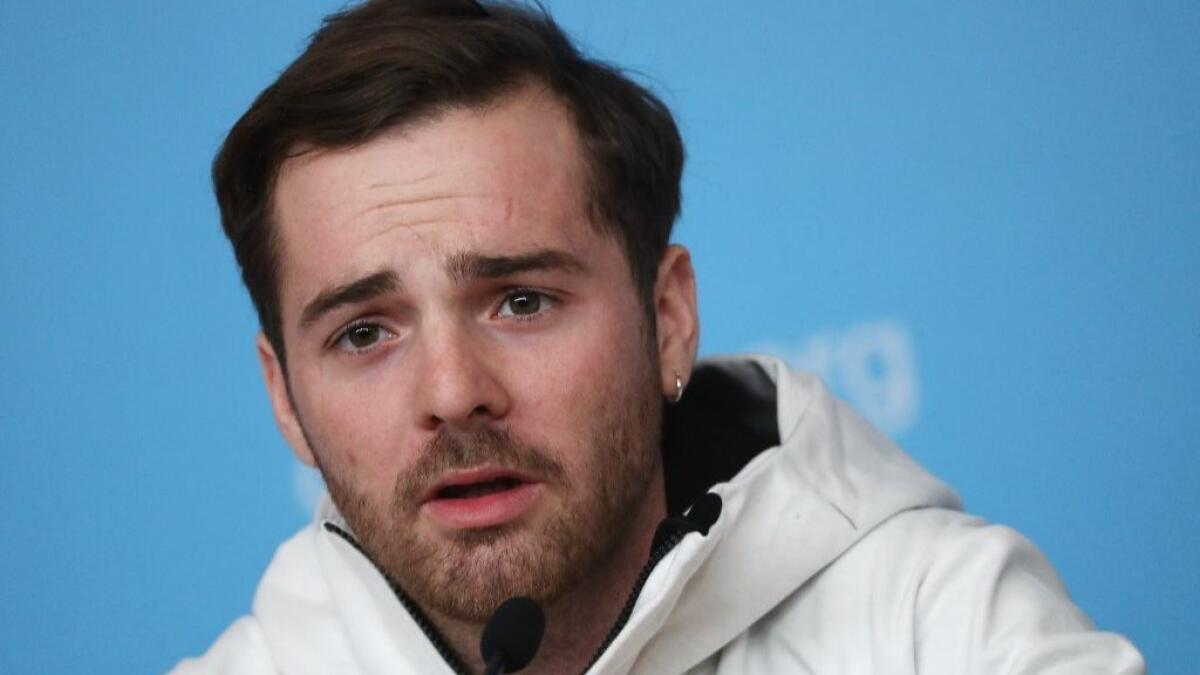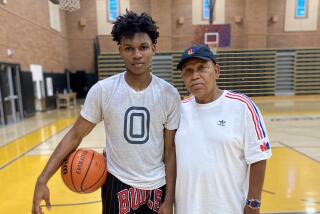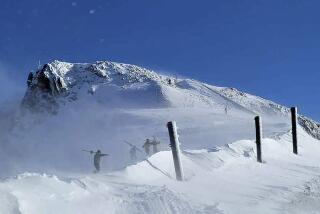Jon Lillis keeps the memory of his brother alive in his heart and around his neck

Under banks of floodlights that turned the night to day, Jon Lillis twisted through the air in search of an end to an ache that will never leave.
His brother came along for each launch off the jump at the Phoenix Snow Park, each spin, each flip, each landing among the pine boughs dotting the snow at the base of the hill.
The presence mattered more than the eighth-place finish in the aerials Sunday at the Pyeongchang Olympics.
“My life the last three months,” Lillis said afterward, “has really been trying to find ways to keep him close to me.”
Almost four months ago, Mikey Lillis’ parents found the 17-year-old dead in their Rochester, N.Y., home. He went to bed and never woke up. There weren’t any answers. One day Mikey was there. The next day he wasn’t.
Among the three brothers — Jon, Chris and Mikey — the last one had the most natural athletic ability. Everyone called them “Team Lillis.” They weren’t individuals. They were a family. While Jon and Chris competed in the International Ski Federation’s World Cup aerials circuit, Mikey joined the Elite Aerial Development Program at the U.S. Olympic Training Center in Lake Placid, N.Y.
On one video of Mikey jumping one day last summer, an announcer introduced him as “one of the three brothers.” Everyone knew them. His jumps were higher, smoother, more acrobatic than other competitors.
“I will the spend the rest of my life trying to live up to the person he would have become,” Chris, 19, wrote two days after the death.
Bernie Lillis made a 2½-minute video montage of his youngest son’s grins and jumps and good times.
“Hold me down,” the song in the background said, “I’m gonna fly straight to heaven.”
When Bernie collected Mikey’s belongings at the Training Center, he noticed a poster of Babe Ruth above his bed. A quote in large, white letters sprawled across the top: “I swing big, with everything I’ve got. I hit big or I miss big. I like to live as big as I can.”
That was Mikey.
No one would’ve blamed Jon for passing on the Olympics to find some place, some way to heal. But Mikey dreamed of competing in them one day. Now they would go together. Every social media post carried the same hashtag: #JumpingforMikey.
Chris was on track to make the aerials team, too. He got a tattoo over his heart of Mikey in midjump in front of mountains and trees. But Chris suffered a torn anterior cruciate ligament and fracture in his right leg during a World Cup event in China in December.
During the opening ceremony in Pyeongchang, Jon wore a blue, oval pendant containing some of Mikey’s ashes. Jon amassed the highest score during the qualifying round. The dizzying sport — a combination of gymnastics and skiing — helped take his mind off the loss.
“I think if you can use these types of things to motivate you and push you, that’s extra wind in your sail,” Jon said. “At night when you get home, it can sometimes take away from sleep. But when you’re out here and you need to perform, that’s when it really pushes harder than holding you back.”
Frustrated youth ski coaches directed Jon to aerials years ago after they struggled to keep his attention during drills.
“He always wanted to ski through the trees and jump off anything he could find rather than ski around the gates,” Johnny Kroetz, his aerials coach from ages 8 to 14, wrote in an email. “(He) always wanted to do the hardest and biggest jumps that he could.”
Perhaps none were tougher than his two jumps Sunday.
Jon, a 23-year-old who won the FIS Freestyle World Championship last year, wore Mikey’s old uniform. U.S. team logos replaced the old sponsor patches.
“He would have thought it was the coolest thing ever,” Jon said. “I know he would have been down in the cheering section, freaking out like a mad football fan.”
Bernie, his wife, Jamie, and Chris all wore identical pendants filled with Mikey’s ashes as they watched from the grandstand filled with sign-waving, flag-waving supporters.
Jon advanced to the second round of the 12-man final, but faltered on his second jump. The fist pumps and jubilation after his first jump disappeared. He knew his Olympics were over. He didn’t advance to the medal round. Eventually, Ukraine’s Oleksandr Abramenko ended up with the gold.
But Mikey was there. Jon could feel it.
“For me,” he said the day before the final, “it’s coming out here and trying to give my parents something to smile about.”
The floodlights kept illuminating the Phoenix Snow Park long after the crowd left for waiting buses. Like the memory of Mikey, the lights never went out.
Twitter: @nathanfenno
More to Read
Go beyond the scoreboard
Get the latest on L.A.'s teams in the daily Sports Report newsletter.
You may occasionally receive promotional content from the Los Angeles Times.







